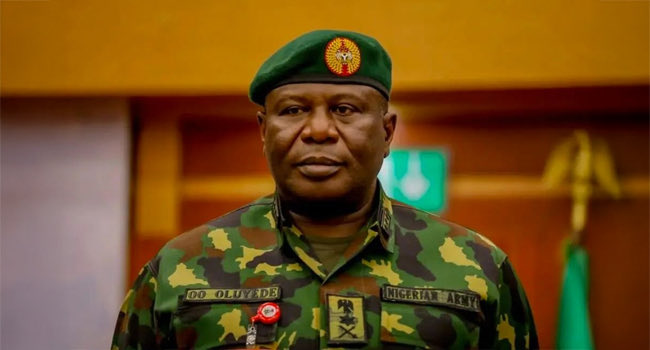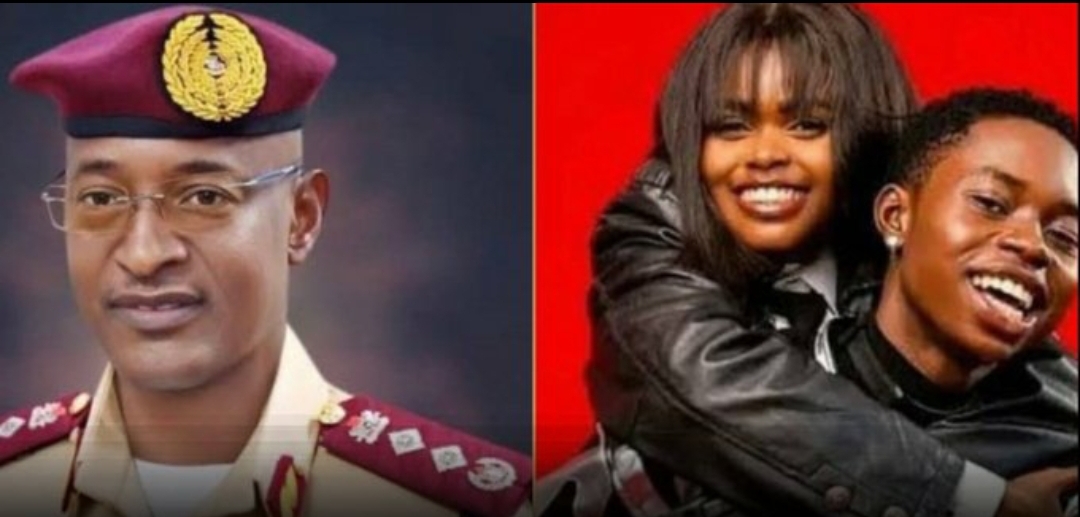

In a decisive move aimed at bolstering Nigeria’s national security architecture, President Bola Tinubu announced a sweeping overhaul of the country’s service chiefs on Friday, signalling a new phase in the federal government’s efforts to reinvigorate its response to persistent security threats across the country.
At the heart of the shake-up is the appointment of General Olufemi Oluyede as the new Chief of Defence Staff (CDS), replacing General Christopher Musa. According to a statement from the presidency, the changes are effective immediately and apply across the major branches of the armed forces.
The announcement comes amid mounting pressure on the government to step up its efforts in addressing insurgency in the northeast, rampant banditry and kidnappings in the northwest, and separatist unrest in parts of the southeast. President Tinubu told Nigerians that the leadership change is meant to send a clear signal: the status quo will no longer suffice.
In addition to General Oluyede’s elevation, the shake-up includes the appointment of Major-General W. Shaibu as Chief of Army Staff, Air Vice-Marshal S.K. Aneke as Chief of Air Staff, and Rear Admiral I. Abbas as Chief of Naval Staff. Meanwhile, Major-General E.A.P. Undiendeye remains as Chief of Defence Intelligence.
Analysts say this move reflects the administration’s recognition that new leadership is required if the military is to adapt to the growing complexity of security challenges. A senior aide to the President stated that the new team will “hit the ground running” with fresh directives and revamped operational priorities.
The incoming Chief of Defence Staff, Oluyede, is no stranger to the military hierarchy. He has a distinguished service record, including command of elite infantry formations, and his appointment has been widely seen as a signal that the armed forces are shifting towards a more operationally driven posture. While most of his previous public profile related to his role as Chief of Army Staff, the elevation to CDS adds a broader strategic dimension to his remit. (See his profile on the Nigerian Army website and other sources.)
Observers note that the timing of the overhaul is significant: the President has repeatedly emphasised that security remains the “first duty” of government, and this reshuffle appears to align with his broader agenda of institutional reform. In recent months, the military has come under criticism for what many see as incremental progress despite large deployments, especially in the northeast where the Boko Haram insurgency and other affiliated groups continue to hold sway.
One key question raised by commentators is how quickly the new chiefs will be able to make operational-level changes. While changing names at the top matters, the real gains will depend on resource allocation, inter-service cooperation, troop morale and, crucially, intelligence and strategic planning. The retention of Undiendeye as Defence Intelligence Chief is seen by some as a nod to continuity in intelligence functions, even as other branches experience radical change.
Another aspect to monitor is how the shake-up will affect regional balance and service culture. Nigeria’s armed forces are drawn across diverse regional and ethnic lines, and leadership changes often carry symbolic weight beyond just operational command. President Tinubu’s decision suggests he is less constrained by seniority or regional optics than by operational effectiveness.
Critics caution that appointments alone will not solve structural security problems: funding shortfalls, terrain challenges, porous borders, and the evolving nature of insurgency and banditry will continue to test the new leadership. However, supporters argue that fresh faces can reset momentum and create new possibilities for institutional renewal.
In a country where insecurity imposes huge human, social and economic costs, the message from the presidency is clear: accountability and performance will be the benchmarks going forward. The new service chiefs have been given a mandate to deliver tangible results — not just tactical successes but sustained improvements in security outcomes for Nigerians.
As this leadership transition takes hold, all eyes will be on how soon Nigerians begin to see visible impact: improved coordination, faster response to threats, better integration of intelligence, and strengthening of community-military partnerships. The government has promised more detailed strategic directives in coming weeks.
President Tinubu’s bold leadership change thus marks the opening chapter of what he hopes will be a more assertive phase in Nigeria’s fight for stability — one in which the military is repositioned not just to respond, but to anticipate and prevent security threats before they escalate.


